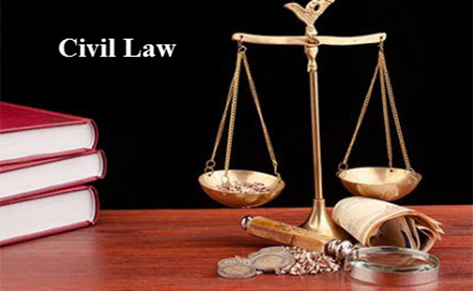History
of legislation
Before 1859 there was no law governing the procedure for the
courts of the Civil Judicature. For the first time, the laws of procedure of
the civil courts were codified in 1859. It underwent several amendments and was
replaced by the Code enacted in 1877.
The
third Code was enacted in 1882 repealing the Code of 1877. In 1908 the present
Code was enacted repealing the Code of Civil Procedure of 1882. The present
Code was amended from time to time and after the emergence of Bangladesh, the
Code was amended
by net VIII of 1973 and Act LIII of 1974 adapting it to the changed situation.
After liberation of Bangladesh, delay in disposal of suits was gradually
increasing.
To
cope with the problem, substantive amendments were made by the Law Reforms Ordinance,
1978 and the Code of Civil Procedure (Amendment) Ordinance, 1983. By Act XXXII of 1989 certain provisions were
made relating to temporary and ad interim injunction. In 2003 Parliament passed
three amendment Acts. By Act III of 2003 provisions have been made for
mediation and arbitration.
By
Act XXIX of 2003 certain important amendments were made, but before the
commencement of this Act, Act XL of 2003 was passed repealing Act XXXII of 1989
and Act XXIX of 2003 and making some amendments. Lastly, by Act VIII of 2006
further amendment has been made with the object of curbing the delay in adjudication of
disputes.
Application
of the Code.
The
Code consolidates and amends the laws relating to the procedure of the Courts
of Civil Judicature in Bangladesh. The Code regulates civil proceedings
generally. If the proceeding involves assertion or enforcement of civil rights,
it is a civil proceeding, whatever may be the source of the court's jurisdiction
for enforcement of such right.' The Code does not speak of any particular court
or courts except mentioning the Courts of Civil Judicature.
The
Civil Courts Act, 1887 has provided for different types of civil courts for adjudication
of civil disputes and the Code regulates the procedure of those courts. But
there are a number of special laws dealing with disputes or matters of civil nature.
The Code applies to all proceedings in the courts of civil judicature except
that it does not affect the operation of those special laws or any special
jurisdiction or power conferred or any special Corm of procedure prescribed by
or under any other law.
The
Code applies to the proceedings dealt with by the special laws to the extent permitted
by those special laws. When the legislature confers a special or additional
jurisdiction on a recognized court it may lay down the manner in which it is to
be exercised, but if it is silent then all the rules of procedure that apply to
its ordinary jurisdiction will be attracted with regard to the special
jurisdiction.
The Code applies to
the civil proceedings before the High Court so far as it is not restricted by
any special Law or any constitution.
But
the Appellate Division is not bound by the provisions of the code; it has its
own rules framed by it under the provisions of article 107 of the Constitution.
If any matter is not covered by its rules, the Appellate Division adopts a
procedure keeping in view the procedure prescribed by the Code.
The
Code is applicable in the entire territory of Bangladesh. In a case it was held that the Code has no
application in Chittagong Hill Track. But contrary view was taken in a
subsequent decision holding the earlier decision to be per incuriam.









0 comments:
Post a Comment